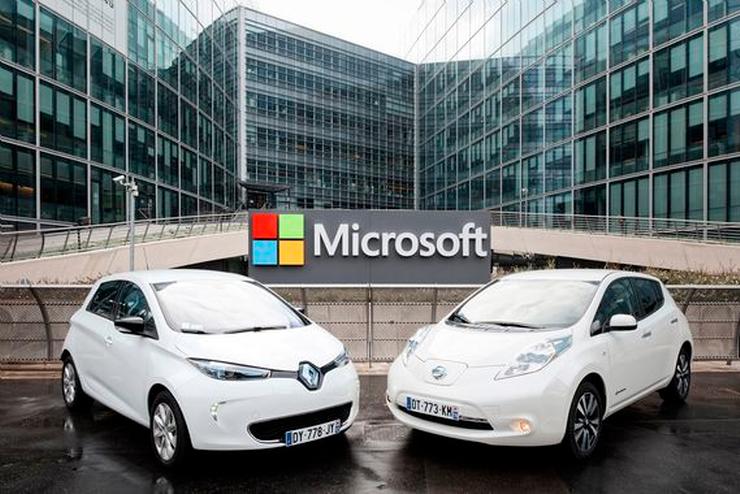Microsoft has been making a ton of deals over the past few months, the latest of which is a multi-year partnership with carmaker Renault-Nissan Alliance. The duo will spearhead research and development of advanced connected car technologies, including remote monitoring, advanced navigational capabilities, predictive maintenance OTA (over-the-air) software updates and external mobile experience.
Microsoft is now yet another contender in the race for self-driving vehicles, but this new partnership points to another key area in the future of automobiles – car connectivity. This space is as crowded as the autonomous driving segment, but the two companies working together can leverage the cloud capability of Microsoft Azure to create a holistic online experience for car owners.
As a result of this partnership, the two companies hope to create products that will support the launch of more than 10 car models with self-driving capabilities and fully integrated connectivity by 2020 – an ambitious goal if ever there was one.
Renault-Nissan’s decision to pick Microsoft Azure over all the other cloud providers is a testament to Microsoft’s stringent compliance policies and enterprise-grade security protocols. Since everything will be delivered from the cloud in multiple countries, security and compliance will be critical to the success of this project. Some countries, for example, will not allow automobile user data to cross its borders. That means Microsoft will need to provide regional hosting of data in its data centers around the world.
The only other company capable of this type of regional compliance is IBM, but it is unclear why Renault-Nissan would choose Microsoft over IBM for this partnership.
Microsoft’s Angle on Connected Cars and Autonomous Driving Technology
For Microsoft, the most exciting aspect of this is a chance to bring its productivity suite into connected cars. The idea is to be able to offer productivity tools in fully autonomous cars. That means you leave the driving to the car while you concentrate on your work.
Microsoft seems to be going full clip on this whole ‘productivity on the go’ experience. Last month they announced that they have partnered with Mercedes to create an “in car office” experience that will allow users to check their schedules, use chat, and several other features while driving.
Here’s what we wrote in that article:
“The project is still under development but we know that Microsoft is already heavily focused on workplace productivity with their Office 365, Surface tablets, Stream corporate video-sharing app and several other products in the works.
That means Mercedes could be looking at having a Windows 10 Surface touch interface installed into the center stack, similar to what you’d see on any Tesla Motors electric vehicle.
It is not known whether either company holds any exclusivity with this project, but knowing Microsoft they’re not going to want to tie themselves down to just one car maker. This technology goes beyond Mercedes, and possibly even beyond Microsoft.”
And here’s my proof now that Microsoft isn’t putting all its chips on one partnership. Although the scope of the Renault-Nissan partnership seems to be much deeper than the one with Mercedes, it clearly highlights Microsoft’s need to get into this space one way or another, and in the process push its mobility, cloud, device and productivity agendas forward at a rapid pace.
Not to forget Windows 10, of course, which will likely provide the operating system that everything else sits on top of.
Thanks for reading our work! If you’re reading this on Apple News, please favorite the 1RedDrop channel to add us to your news feed, or Like our page on Facebook. Please bookmark our site for more insightful articles on current and future technologies that are changing our lives.



